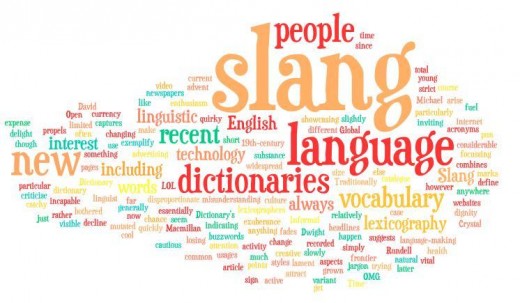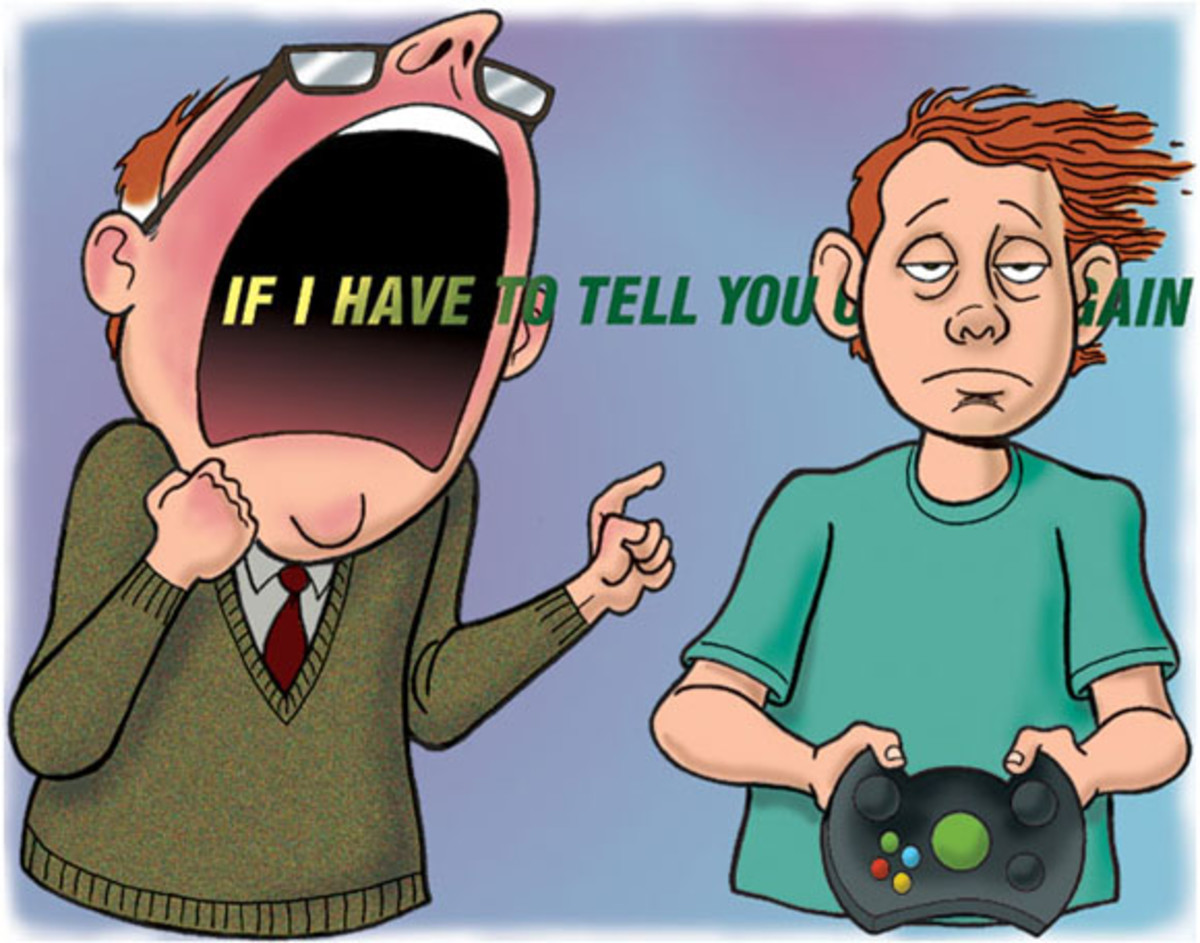Slanguage: What's your verdict?

Many teenagers, and even some adults, are guilty of using slang in their everyday vocabulary. They’re enclosed within this prison of vernacular speech, which they’re now imposing on the new offenders of language. This lexical crime has been debated for hundreds of years: are we posh if we use words like disastrous and marvellous in everyday life? Should we accept slang as a youth culture and respect its place in society? Or should we ban slang words to save the dignity of humanity?
Young people are widely known to have their own speech variations. Words like ‘innit’ are used within their everyday conversations with friends, which is acceptable, but would an employer take you seriously if you exclaimed ‘innit’ during your interview? I doubt it very much. How can you expect to expand your knowledge and further your career if you can barely string a sentence together? It’s suggested, by linguists, that teenagers should know 40,000 words by the time they’re sixteen, but only use 800 - mostly formed of typical slang words, such as: yolo, bae and sik - because they don’t know anymore. Does this sound like an improving generation? I dread to think how their Grandchildren will speak in years to come if the English language is already in such a state.
Some people believe ‘Slang keeps English Fresh’ because it is so widely understood. But are you familiar with the term ‘Greycation’ which refers to taking your Grandparents on vacation with you? Or the word ‘moss’ which means to relax or chill? Probably not, because slang is used as a secret code between young people so that ‘old’ people can’t understand what they’re saying. Professor Coleman, Professor of Medical Oncology and Honorary Consultant in the Academic Unit of Clinical Oncology at Weston Park Hospital, said the use of slang ‘emerges when people are put in a position where they are at the bottom of a hierarchy.’ I couldn’t agree more. Slang makes you appear uneducated, of a lower class and incapable of being linguistically inept, so by using this form of language as a response for your position in society, it reiterates your inability to improve yourself. How could that possibly keep language ‘fresh’?
I’m not saying children are stupid if they can’t speak properly, however there are studies to prove that children’s oracy affects their learning. Recently a school in Manchester became so concerned with the decrease in Children’s language, that they banned slang words from their school. Maria Nightingale, Principal for operations at the Manchester Academy, stated: ‘It was clear many students found it difficult to get through a sentence without using ‘innit’ or ‘d’ya know what I mean’. As a consequence of their ban, exam results have soared. Shouldn’t more schools approach slang with the same attitude in order to preserve basic English skills? It’s despicable that children can’t structure a sentence without using a slang word, especially when young children think in strikingly different ways compared to adults, as proven in Piaget’s study of child language acquisition.
There are roughly 6,500 languages used worldwide. Is it necessary to add another one? Teenagers now use slang as their main language, using only few, basic English words. They are struggling with formal language tests because they’re failing to understand, and use, words that they should know. I assume this kind of behaviour is acceptable as long as they get to express their individuality, right descriptivists?
Those who use slang live in a prison of stupidity. Their uneducated words insult, offend and violate those who actually care to talk ‘properly’. Slang users refer to educated people who correct their speech as ‘Grammar Nazi’s’. I’m aware people don’t take to criticism kindly, although I fail to understand the comparison between someone who respects language to a group of people who gassed over a million Jews in Auschwitz. They’re sabotaging our language with their moronic manner. But this is allowed because there isn’t a language police - if there was, these offenders would be serving a life sentence!
Jean Aitchison, a renowned linguist and author of ‘Language Change: Progress or Decay?’, would claim that these uneducated slang users are guilty of her ‘Damp Spoon’ theory, which suggests people are becoming lazy and sloppy. For me, this is the definition of slang. People use it because they cannot be bothered to articulate correctly. Yes, our language can be complicated. Yes, some words are hard to comprehend. However, laziness doesn’t work with language. Language is already a unique and beautiful way of communicating; why would you ruin something that is already so amazing with slanguage like ‘wagwan’? It’s distasteful, immoral and downright disrespectful. Anyone who speaks in this way is completely illiterate and has no hope of achieving highly in their irrelevant, criminal, lives!
Would you believe that some of these appalling words have actually made it into the dictionary? The new word ‘selfie’ that first appeared in 2014, to describe a picture taken (of yourself) on the front camera of a phone, is now featured in the Oxford dictionary. I understand there aren’t words that exist for every new invention/idea, but do we really need a word that describes a photo taken by a vain individual? No. There was nothing wrong with saying ‘photo of myself’ which in my opinion, sounds more polite and literate. It’s laziness. People are becoming so extremely lazy with their language that it actually offends me!
To prove my inability to accept such grotesque language, I have even been known to ‘unfriend’ people who use slang on social media websites. I cannot interact with people who fail to communicate without resulting in made up words, with no literal meaning. It’s a crime against language. Even as a teenager, I find it revolting that people resort to using words like: piff, dank, bae and cotch. Why can’t they speak properly? How can anyone who uses ‘slanguage’ effectively achieve anything in life? More importantly, how can they teach their own children English if they can’t speak it themselves?
Even though I disagree with the use of slang, I am aware that slang allows you to express yourself and enables you to create your own identity. During a debate about slang, a mother declared that if slang is banned it will ‘further alienate children in what is such a confusing world’ but, isn’t it fair to disagree that slang already alienates everyone bar young people? That statement is a contradiction. Even people who justify the use of slang can’t make sense of its existence without looking as stupid as those who speak it. Some people believe slang provides flexibility and variety to the language. However, we already have synonyms for words (allowing those words to vary and become flexible) so why do we need even more? For example the adjective ‘pretty’ can be replaced with: beautiful, stunning, gorgeous and attractive. Why is it necessary to add ‘piff’ or ‘buff’ to the list? Words that sound the complete opposite to the compliment ‘pretty’. Slang makes no sense.
How can people argue that slang expresses your individuality when it actually restricts people to be imprisoned by their ‘language’? It’s a detention of speech that requires no intelligence. Isn’t this the exact reason schools should be stricter with children’s writing? If they’re writing the way they’re speaking, how will they pass their GCSES? Their life will stop when they’re only young. They won’t be able to grow up and tell their children how well they did in school and how they’re proud of what they’ve achieved. Infact, their children will probably be just like them - uneducated and a failure. Would you see anyone with authority using slang words because it ‘expresses their individuality’? No. People expect someone with a respectable career to speak properly. No-one is going to follow orders from someone who can’t speak. How is it fair to justify the language of teenagers to be ‘fresh’ but to judge an ‘older’ person as an idiot for speaking the exact same way?
Verdict: the use of slang is idiotic and criminal.






